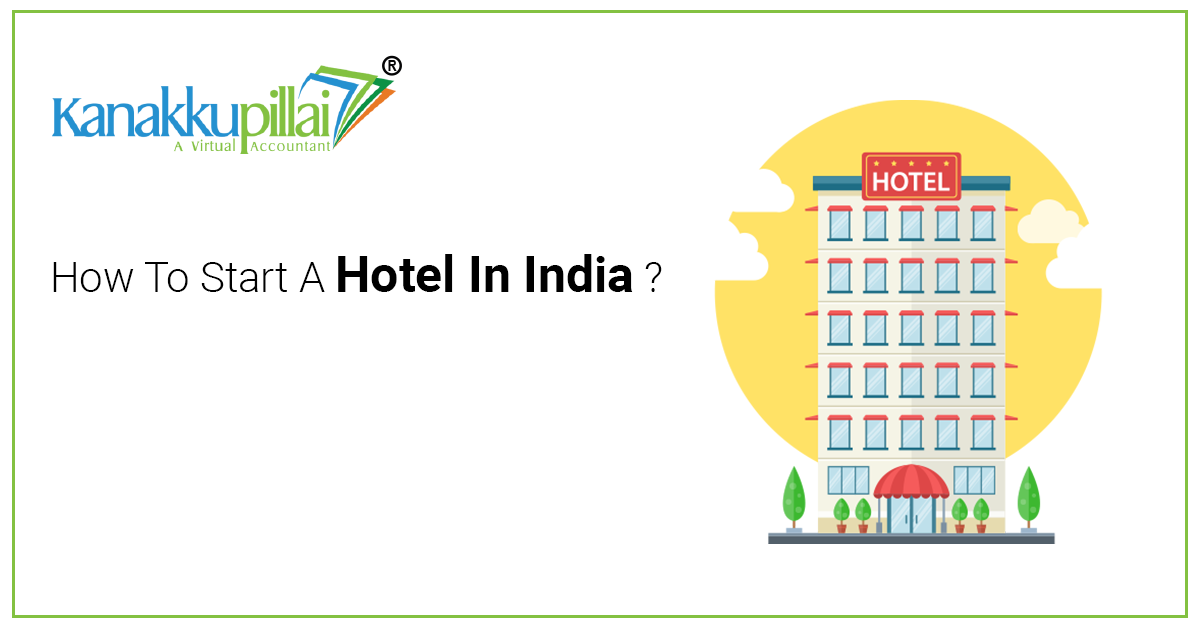Last Updated on July 26, 2025
Starting a hotel in India can be a lucrative business, particularly given the country’s emerging tourist and hospitality sector. Whether you intend to construct a luxury resort, a business hotel, or a budget stay, the process requires prudent planning, adherence to regulations, and an effective business strategy. This guide will walk you through the process of starting a hotel in India.
Step-by-Step Procedure to Start a Hotel in India
1. Understanding the Indian Hospitality Market
Before opening your hotel, you must understand the market landscape.
- Research the Industry: Analyse current hospitality trends, popular destinations, and types of hotels in demand (budget, mid-range, luxury, boutique, etc.). The travellers in India are characterised by diversity in both demographics and types of travellers; visitors, business people, pilgrims and backpackers.
- Find Your Target Market: Determine who you desire to serve. Will you target people travelling in your nation, overseas travellers or business people? It will determine where you are, what services and price you are.
2. Select the Right Location
- Location is Key: The location is an important constituent of hotel performance. Indeed, leisure hotels are fantastic at tourist hot spots such as Goa, Jaipur, Kerala or Himachal Pradesh. Business hotels best work in cities such as Delhi, Mumbai, Chennai, Bengaluru and Hyderabad.
- Evaluate Accessibility: Make sure that the hotel is well connected using road, rail or air travel. Neighbourhoods to landmarks, markets or corporate centres could be of huge advantage.
3. Prepare a Hotel Business Plan
The strategy and funding of a hotel start-up in India require a detailed plan.
Include Key Elements
- Mission and vision
- SWOT analysis
- Market segmentation
- Pricing plan
- Types of rooms and amenities
- Personnel needs
- Marketing and promotional techniques
- Profit and Break-even projection
Financial Planning
Summarize your capital investment, operating costs, source of revenue and ROI projection. Financial planning is important in winning over investors and in getting loans.
4. Arrange Capital and Financing
Where to invest to start a Hotel
The capital requirement of even a small hotel in India can be huge. The investment differs on the basis of:
- Land and building cost
- Interior and furnishing
- Licensing and permits
- Equipment and staffing
Funding Options
- Personal saving
- Loans from banks
- Venture capitalists or the inhabitants of an individual investor
- Government programs (e.g. MSME loans)
Develop a comprehensive business proposal and model for the hotel to secure financial backing.
5. Legal Requirements and Licenses
In India, you are required to hold a few hotel licenses to operate legally.
Essential Licenses Include:
- Business registration: The business will be registered as a partnership, LLP or a company
- Hotel license from the local municipality
- Trade License
- Fire Safety Certificate
- FSSAI license for food service
- Registration of GST
- Environmental Clearance (when available)
- Approval of Building Plan
- Police department NOC
Each States have additional rules; therefore, review the registration requirements set by your local government concerning hotels.
6. Hotel Registration in India
Register your Hotel with the Ministry of Tourism
Classify hotels with a name like 1-Star to 5-Star or heritage hotels to be identified and rated by the Ministry of Tourism (Government of India).
Advantages of Hotel Classification
- Official recognition
- Entitlement to government incentives
- More exposure of tourism websites
To be eligible, you must meet the quality, amenity, safety, and hygiene requirements.
7. Marketing and Branding
- Promote Your Hotel: Establish a high online presence in terms of having a user-friendly site, on Google My Business, and social sites.
- Use Online Travel Agencies (OTAs): Strategise with OTAs such as MakeMyTrip, Booking.com, Goibibo and Agoda to attract more.
- Offer Promotional Packages: Offer your initial customers discounts, loyalty programs, and seasonal packages.
- Branding is Everything: Build an interesting brand name, signature and identification that comprises your hotel’s value and market.
8. Launch and Operate Smoothly
- Soft Launch Strategy: Try out your hotel with a soft opening. Ask people to provide feedback and make improvements prior to the grand opening.
- Guest Experience Concentration: Ensure that check-in, room service, room cleanliness, food quality, and the conduct of the workforce are all at their best.
- Utilise Hotel Management Software: Automate bookings, billing, housekeeping schedules, and inventory management to enhance efficiencies.
Conclusion
The hotel business in India may need enthusiasm, stratagem and tenacity. With careful selection of the location, adherence to legal norms, formulation of a strategic plan for opening a hotel in India, and an emphasis on guest satisfaction, you can develop a successful business in hospitality. The tourism and travel industry in India is on the rise, presenting you with better opportunities to make your dreams come true.
Frequently Asked Questions
1. How much does it cost to start a hotel in India?
The price also varies depending on the size, location, and type of hotel. The cost of a small budget hotel can range from 50 lakhs to 1 crore, while a mid-range or luxury hotel can exceed 5 crores.
2. Should I register my hotel with the government?
Indeed, hotel registration in India is required by local law and classification in the optional category by the Ministry of Tourism can give it plausibility.
3. Which are the licences needed to operate a hotel?
The most important licenses are a trade license, an FSSAI license, a fire safety certificate, GST registration, and a hotel license from the local authority.
4. Is it possible to open a hotel on leased land?
Yes, it is possible to open a hotel on rented land, but to do so, you must have a lease of a commercial or business nature and obtain the required permission.
5. What are the means of advertising my hotel business?
Apply digital marketing, design an online office, and promote your hotel on OTAs, as well as target pop ads on social media sites to increase visibility.





